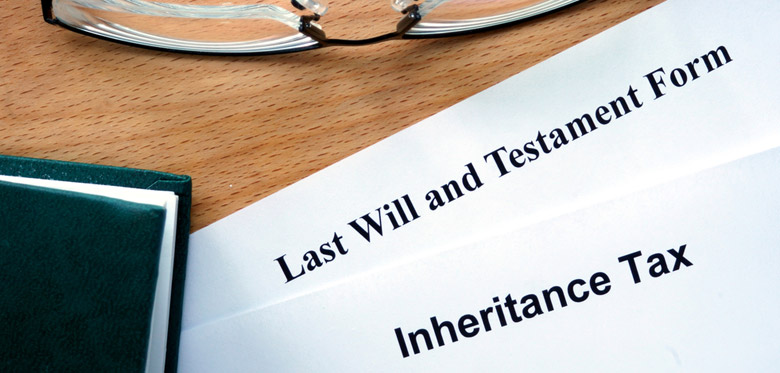More individuals and families are finding themselves exposed to the possibility of their estate suffering inheritance tax (IHT).
The basic IHT exemption of £325,000 per individual has remained unchanged for some years. An additional Residence Nil Rate Band of £175,000 covering property has been introduced by the government in recent years, which is broadly beneficial if you have property assets to that value to bequest either to children and/or grandchildren. For most married couples or civil partners the maximum cover before their estates will be subject to IHT is £1 Million (£325K + £175K) x 2.
It is not uncommon to inherit assets upon the death of parents or a family member. Quite often the beneficiaries will be at the point in life themselves where they have already accumulated significant assets. Any subsequent inheritance could therefore increase their own exposure to IHT of 40%.
There may be circumstances where the beneficiary under a Will or an intestacy (where there is no Will) may wish to change the way the estate is distributed. This means that the estate will not then be distributed in accordance with the Will or by the rules of intestacy, but instead under the terms of a deed of variation which needs to be executed within two years of death. This enables flexibility in how the estate is distributed, particularly if circumstances have changed since the Will was made.
The most common reasons to vary the distribution of an estate via a deed of variation are:
- Redirecting a legacy or entitlement from a named beneficiary the estate to someone else to mitigate their own exposure to potential IHT
- Making equal distributions to beneficiaries
- Providing for a beneficiary not included in the Will or under the intestacy rules
- Limiting the IHT liability of the estate, such as redirecting an entitlement to a charity.
A deed of variation can be entered into by the beneficiary of an estate who can redirect their inheritance entitlement to another individual (or charity) regardless of whether that individual has been named in the Will or is entitled to benefit under the rules of intestacy.
Beneficiaries can only amend their share of the estate. It is not possible for a minor under the age of eighteen to legally agree to a deed of variation.
Should you have questions about making a deed of variation please call us on 0161 696 6238 or complete our online enquiry form. Many of our team are members of the Society of Estate and Trust Practitioners (STEP).



Comments